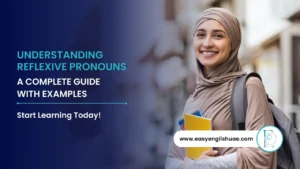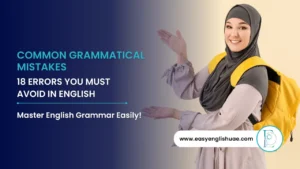

Learning English grammar can be easy if you start with the basics. One of the most useful parts of English grammar is modal verbs. These verbs help us express different ideas such as ability, permission, and possibility. In this blog, we’ll focus on two important modal verbs: can and could.
We’ll cover the definition of modal verbs, provide examples, and share how you can use them in daily life. By the end of this blog, you’ll feel more confident using modal verbs in your own sentences.
Modal verbs are special helping verbs. They work with main verbs to add meaning. These verbs include:
Each modal verb expresses a different function. Some show possibility. Some show ability. Others are used for permission or polite requests.
We use can to talk about skills or talents. It shows what someone is able to do.
Examples:
In these sentences, “can” shows the ability to do something.
Can also shows that something is possible.
Examples:
These sentences show that something might happen.
Can is often used to allow or ask for something.
Examples:
These are examples of giving or asking for permission.
Could is the past tense of can, but it also has other uses. Let’s look at them.
We use could when talking about what someone was able to do in the past.
Examples:
These sentences talk about skills people had in the past.
Could also shows possibility. It’s more polite or uncertain than “can.”
Examples:
This use shows that something might happen or might have happened.
Could is more polite than “can” when asking someone to do something.
Examples:
This form is often used in formal or respectful situations.
Here are 10 sentences using modal verbs (can and could):
Try these short exercises to practice:
Fill in the blanks:
Answers:
These exercises are perfect for beginners and help improve both vocabulary and grammar.
Learn them with their meanings and create your own sentences
This is one of the 20 words to improve your vocabulary quickly.
Knowing such pairs helps with vocabulary and grammar improvement worksheets.
Antonyms help you express yourself clearly. They also teach you how to say the opposite of something in English. This is useful in daily conversations, writing, and even in exams like IELTS.
They also make your sentences more creative and balanced. You can compare two things, explain ideas better, and sound more natural.
Many students ask:
“How can I improve my grammar and sentence structure?”
The answer is: Practice every day. Use vocabulary lists. Learn antonyms and synonyms. Read and speak regularly.
You can also download vocabulary and grammar improvement worksheets. These worksheets help you focus on grammar rules and new words. Fill in the blanks, match the antonyms, and create sentences using the new words.
Adults can find it hard to learn new words. But don’t worry. Start with basic pairs like the ones in this blog. Write them down. Use them in your daily life. Watch English videos and repeat the sentences.
Also, read simple blogs and stories. Reading is the best way to see how vocabulary works in real life.
Many learners can write well but struggle to speak. To improve your English speaking:
You can also improve your English free by using YouTube channels like the Easy English Channel.
We hope this blog helped you learn some useful opposite words. Remember, you can’t improve overnight. But with daily practice, you will see results.
Use these 20 words to improve your vocabulary. Read them, write them, and speak them. That’s how you will improve your English grammar and improve your English vocabulary at the same time.
Learning English is a journey. Take one step every day, and you will reach your goal.
For more tips and videos, subscribe to our YouTube channel – Easy English Channel – and keep learning!



WhatsApp us